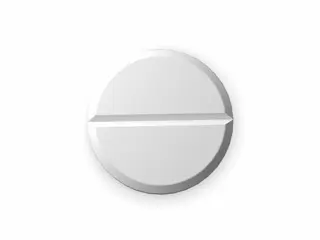Shop Clonidine Online in Canada
| Package | Dosage | Price | Price per Dose | |
|---|---|---|---|---|
| Dosage: 100mcg | ||||
| 270 pill | 100mcg | CAD588.96 | CAD2.18 | |
| 180 pill | 100mcg | CAD433.66 | CAD2.41 | |
| 120 pill | 100mcg | CAD316.25 | CAD2.63 | |
| 90 pill | 100mcg | CAD261.33 | CAD2.90 | |
| 60 pill | 100mcg | CAD198.83 | CAD3.31 | |

Clonidine Description
Overview of Clonidine
Clonidine is a medication primarily used to treat high blood pressure. It belongs to a class of drugs known as centrally acting alpha-2 adrenergic agonists. By working on the brain's receptors, clonidine helps lower blood vessel tension, which in turn reduces blood pressure. It is available in various forms, including tablets, patches, and injections, making it a versatile option for different patient needs.
How Clonidine Works
The primary mechanism of clonidine involves stimulating alpha-2 adrenergic receptors in the central nervous system. This stimulation decreases sympathetic outflow from the brain, leading to a reduction in heart rate and dilation of blood vessels. As a result, blood pressure drops, helping to prevent strokes, heart attacks, and kidney problems associated with hypertension. Clonidine's ability to effectively lower blood pressure makes it a valuable medication, especially for patients who do not respond well to other antihypertensive drugs.
Uses and Benefits
Besides its main use in managing hypertension, clonidine is also prescribed for other conditions. It can be used as part of a treatment plan for managing withdrawal symptoms from opioids, nicotine, and other substances. Some patients find it helpful in treating certain sleep disorders or conditions involving anxiety. The medication's quick onset of action and flexibility in administration are significant advantages. Its efficacy in reducing blood pressure has been well established, providing relief for patients with resistant hypertension who need an effective medication option.
Potential Side Effects
Like all medications, clonidine can cause side effects. Common ones include dry mouth, dizziness, fatigue, and sedation. Some patients may experience constipation or skin reactions when using the patch form. In rare cases, clonidine can lead to more serious effects such as a significant drop in blood pressure, slow heart rate, or allergic reactions. It is essential to monitor patients regularly and adjust dosages as needed. Patients should be aware of potential side effects and report any unusual symptoms to their healthcare provider promptly.
Precautions and Interactions
Clonidine should be used with caution in certain populations, such as those with liver or kidney issues. It also requires careful management when used alongside other medications that affect blood pressure or central nervous system activity. Combining clonidine with other sedatives or antihypertensive drugs can enhance side effects like dizziness and sleepiness. Patients are advised to inform their doctors about all medicines they are taking. Abruptly stopping clonidine can cause a rebound rise in blood pressure, so dosage adjustments should be performed gradually under medical supervision.
Patient Considerations
If prescribed clonidine, patients should follow their healthcare provider's instructions closely. It is important to take the medication consistently to maintain its effectiveness. Patients using the patch should ensure proper application and avoid exposing the patch to heat sources. Regular blood pressure monitoring is vital to assess the medication’s effectiveness. Patients should also be mindful of lifestyle factors, such as diet and exercise, that influence blood pressure control. Discussing all health conditions and medications with a healthcare professional can help optimize treatment outcomes and reduce risks.


